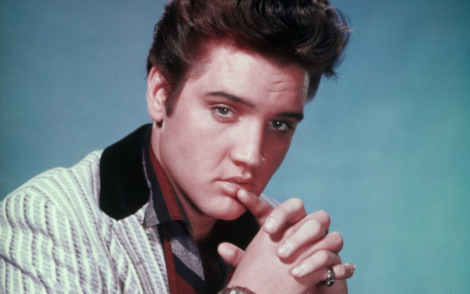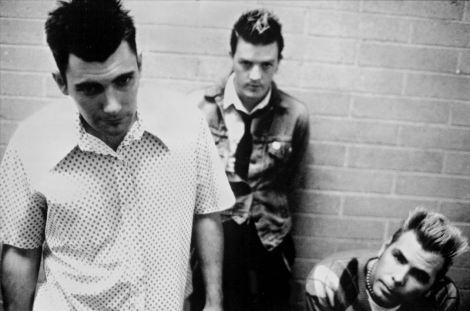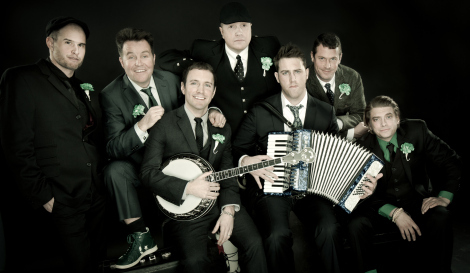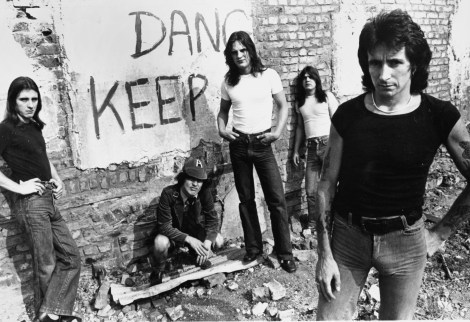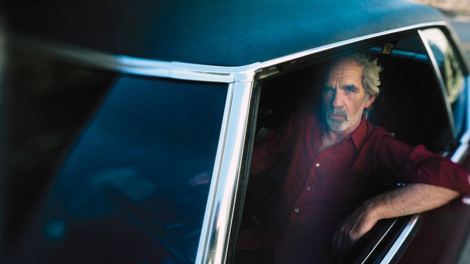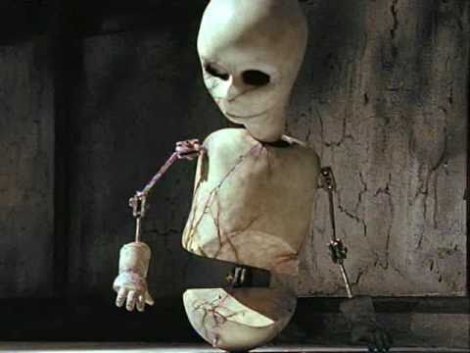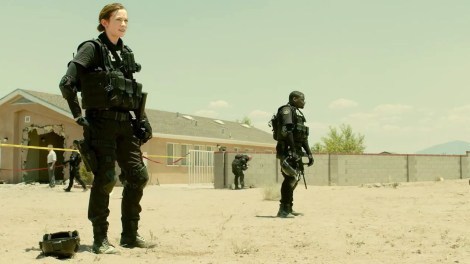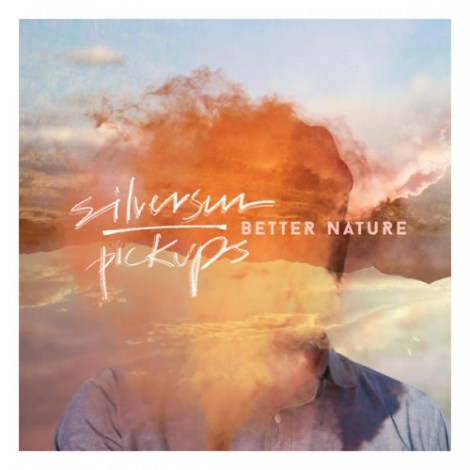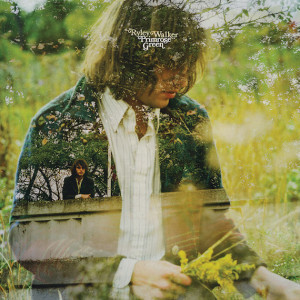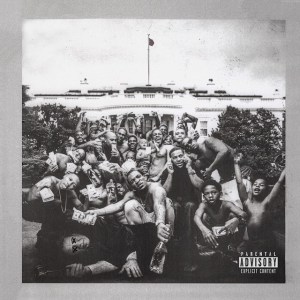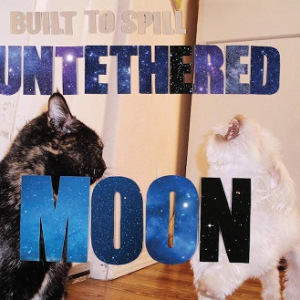Nick Milligan's Blog, page 6
October 26, 2015
10 classic prison songs
In weird and wonderful ways, prison has loomed large in rock mythology. Whether it’s stars like Ozzy Osbourne being arrested for public urination – he was nabbed in 1982 for pissing on a cenotaph erected for those that sacrificed their lives in the Alamo – or the oppression and isolation that it poetically symbolises, jail has been a theme in many classic tunes. And, of course, the likes of Johnny Cash and Metallica have chosen to perform to prisoners.
Here’s the slightly factual history of 10 prison-related ditties:
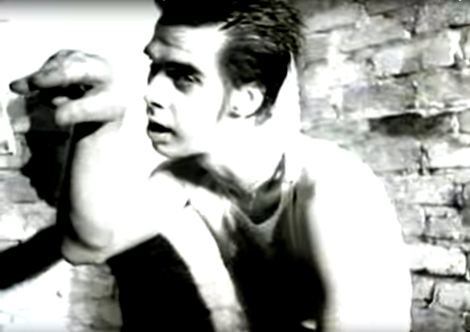 01. NICK CAVE AND THE BAD SEEDS
01. NICK CAVE AND THE BAD SEEDS
‘The Mercy Seat’
Known for his sweetness and light lyrics, Nick Cave stops dwelling on rainbows, butterflies and honey bees and instead turns to darker subject matter on the classic prison song ‘The Mercy Seat’. Ghostly violins and death-march drums underpin this haunting tale of murderous confession and religious reckoning. In the bible, “the mercy seat” is the solid gold lid placed on the Ark of the Covenant but in Cave’s chilling, demented poem becomes the electric chair. The song’s whirring stanzas depict a man on death row who seems a martyr, going to his death despite being innocent. But, of course, in Cave’s wry style, after much posturing the man glibly confesses his guilt in the song’s final moments. And, if you’re after a killer cover, look up The Red Paintings’ version. It’s gigantic.
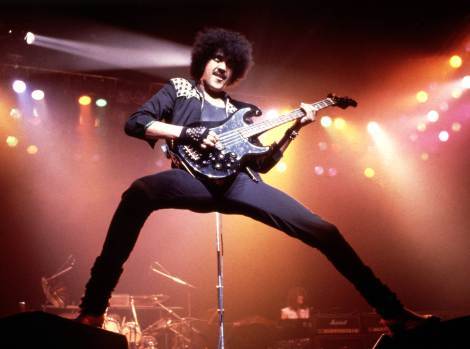
Phil Lynott, of Thin Lizzy, famously thrusted his way out of prison.
02. THIN LIZZY
‘Jailbreak’
No prison song list would be worth its salt without Thin Lizzy’s hard rock anthem, the title track from their 1976 breakthrough record. The lyrics are singer Phil Lynott’s retelling of the time he was convicted of sorcery and sent to Ireland’s Shelton Abbey Prison. He escaped by thrusting his groin through one of the jail’s reinforced concrete exterior walls and, with the help of Ireland’s female population, evaded authorities until his death in 1986. Vale, Phil.
‘Jailhouse Rock’
This classic tune about a homoerotic prison party is played with a straight bat by The King, delivered with his iconic rock prowess. Written by the production team of Jerry Leiber and Mike Stoller, and released in 1957 to coincide with Presley’s film of the same name, the track includes the famous lyrics: “Number forty-seven said to number three, you’re the cutest jailbird I ever did see, I sure would be delighted with your company, come on and do the jailhouse rock with me.” The song was later adapted by screenwriter David McKenna into the 1998 film American History X.
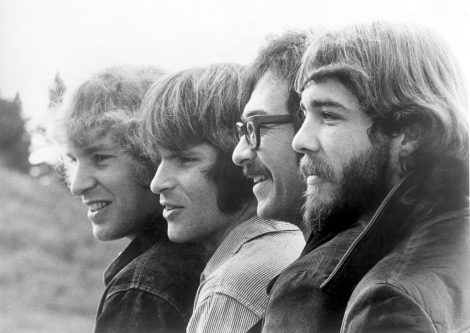 04. CREEDENCE CLEARWATER REVIVAL
04. CREEDENCE CLEARWATER REVIVAL
‘The Midnight Special’
On their 1969 studio record, Creedence Clearwater Revival – or “Creedence!” as they’re known in Cessnock – appropriated the famous Lead Belly tune ‘The Midnight Special’. Sung from the point of view of a prisoner, the song is believed to be a traditional folk song that originated in America’s deep south. Lead Belly, real name Huddie Ledbetter, spent time in prison, so he delivers his 1934 version as a man who has stared long and hard at four walls. Lead Belly would go on to achieve further fame with his cover of Nirvana’s ‘Where Did You Sleep Last Night’.
‘Prisoner on the Inside’
Prisoners. Riots. Underdogs. Working class heroes. This is subject matter that has become The Living End’s bread and butter. With the benefit of hindsight, it’s no surprise that the punkabilly trio released a stirring cover of the theme song from TV’s Prisoner as the B-side to their single ‘Prisoner of Society’. The Living End’s version of ‘On The Inside’ sets a cracking tempo that does away with the melancholy of Lynne Hamilton’s original tune. Prisoner was an Aussie soap opera set about a group of women locked in Wentworth Detention Centre – a drama made long before orange became the new black.
‘Prisoner’s Song’
American Celtic punk rockers Dropkick Murphys have near perfected the fists-in-the-air drunken pirate anthem and ‘Prisoner’s Song’, from 2013’s Signed and Sealed in Blood, is just one example of many in their canon. The lyrics “a prisoner to my thoughts, a number and a cell, locked up like a dog in this worldly hell, marching along, another man on the gang, I’m shackled and sentenced to the ball and chain…” are either a metaphor for the nature of human existence and our slow march toward inevitable death or simply about a bloke who is sick of being in jail.
‘Jailbreak’
When Bon Scott snarls that he’s going to “make a jailbreak”, you’d be a fool to doubt him. Told from shifting points of view, ‘Jailbreak’ is about a bloke who shoots a bloke he finds in bed with his missus. In blues rock music, if you catch someone messin’ around with your love interest you absolutely have to murder one of the guilty parties. Those are the rules. ‘Jailbreak’ first appeared on the Australian release of AC/DC’s 1976 record Dirty Deeds Done Dirt Cheap. The song’s highlight features cheeky Angus Young wizardry in which his guitar enters a sound-effect call-and-response with Scott, imitating sirens and gunfire. Straya.
‘Jailer’
If it’s ever possible to put a J.J. Cale song on a mixtape, then it is advisable to do so. He was one of the coolest cats of all time. The Godfather of Southern-fried stoner blues, Cale sets a beautiful scene in ‘Jailer’ with opening lyrics: “Low-light moonlight comes through my window, but these steel bars spoil the view…” Rest in peace, John.
‘Prison Sex’
The second track of Tool’s 1993 record, Undertow, has a more of a ‘70s rock groove compared to some of their heavier material, but loses none of the band’s incendiary energy. Singer Maynard James Keenan once described the subject matter of ‘Prison Sex’ on stage: “This song’s about recognising, identifying cycles of abuse within yourself. That’s the first step of the process – realisation.” Through the metaphor of a prison encounter, Keenan sums up cycles of abuse with the pivotal lyrics: “Do unto others what has been done to you.”
‘Jailhouse Blues’
CW Stoneking’s wrenching ballad ‘Jailhouse Blues’ sounds like it was released in 1908 as opposed to 2008, but such is the antiquated charm of this anachronistic songwriter. With lyrical gems like, “They says a blind man don’t see nothin’ when he dream, there’s plenty things wish I never seen” and “I wish I never seen her askin’ why when they come and taken me, the way that she cried, Lord, Lord, Lord, I got the jailhouse blues”, the song is loaded with both devastating pain and appalling grammar.


10 CLASSIC PRISON SONGS
In weird and wonderful ways, prison has loomed large in rock mythology. Whether it’s stars like Ozzy Osbourne being arrested for public urination – he was nabbed in 1982 for pissing on a cenotaph erected for those that sacrificed their lives in the Alamo – or the oppression and isolation that it poetically symbolises, jail has been a theme in many classic tunes. And, of course, the likes of Johnny Cash and Metallica have chosen to perform to prisoners.
Here’s the slightly factual history of 10 prison-related ditties:
 01. NICK CAVE AND THE BAD SEEDS
01. NICK CAVE AND THE BAD SEEDS
‘The Mercy Seat’
Known for his sweetness and light lyrics, Nick Cave stops dwelling on rainbows, butterflies and honey bees and instead turns to darker subject matter on the classic prison song ‘The Mercy Seat’. Ghostly violins and death-march drums underpin this haunting tale of murderous confession and religious reckoning. In the bible, “the mercy seat” is the solid gold lid placed on the Ark of the Covenant but in Cave’s chilling, demented poem becomes the electric chair. The song’s whirring stanzas depict a man on death row who seems a martyr, going to his death despite being innocent. But, of course, in Cave’s wry style, after much posturing the man glibly confesses his guilt in the song’s final moments. And, if you’re after a killer cover, look up The Red Paintings’ version. It’s gigantic.

Phil Lynott, of Thin Lizzy, famously thrusted his way out of prison.
02. THIN LIZZY
‘Jailbreak’
No prison song list would be worth its salt without Thin Lizzy’s hard rock anthem, the title track from their 1976 breakthrough record. The lyrics are singer Phil Lynott’s retelling of the time he was convicted of sorcery and sent to Ireland’s Shelton Abbey Prison. He escaped by thrusting his groin through one of the jail’s reinforced concrete exterior walls and, with the help of Ireland’s female population, evaded authorities until his death in 1986. Vale, Phil.
‘Jailhouse Rock’
This classic tune about a homoerotic prison party is played with a straight bat by The King, delivered with his iconic rock prowess. Written by the production team of Jerry Leiber and Mike Stoller, and released in 1957 to coincide with Presley’s film of the same name, the track includes the famous lyrics: “Number forty-seven said to number three, you’re the cutest jailbird I ever did see, I sure would be delighted with your company, come on and do the jailhouse rock with me.” The song was later adapted by screenwriter David McKenna into the 1998 film American History X.
 04. CREEDENCE CLEARWATER REVIVAL
04. CREEDENCE CLEARWATER REVIVAL
‘The Midnight Special’
On their 1969 studio record, Creedence Clearwater Revival – or “Creedence!” as they’re known in Cessnock – appropriated the famous Lead Belly tune ‘The Midnight Special’. Sung from the point of view of a prisoner, the song is believed to be a traditional folk song that originated in America’s deep south. Lead Belly, real name Huddie Ledbetter, spent time in prison, so he delivers his 1934 version as a man who has stared long and hard at four walls. Lead Belly would go on to achieve further fame with his cover of Nirvana’s ‘Where Did You Sleep Last Night’.
‘Prisoner on the Inside’
Prisoners. Riots. Underdogs. Working class heroes. This is subject matter that has become The Living End’s bread and butter. With the benefit of hindsight, it’s no surprise that the punkabilly trio released a stirring cover of the theme song from TV’s Prisoner as the B-side to their single ‘Prisoner of Society’. The Living End’s version of ‘On The Inside’ sets a cracking tempo that does away with the melancholy of Lynne Hamilton’s original tune. Prisoner was an Aussie soap opera set about a group of women locked in Wentworth Detention Centre – a drama made long before orange became the new black.
‘Prisoner’s Song’
American Celtic punk rockers Dropkick Murphys have near perfected the fists-in-the-air drunken pirate anthem and ‘Prisoner’s Song’, from 2013’s Signed and Sealed in Blood, is just one example of many in their canon. The lyrics “a prisoner to my thoughts, a number and a cell, locked up like a dog in this worldly hell, marching along, another man on the gang, I’m shackled and sentenced to the ball and chain…” are either a metaphor for the nature of human existence and our slow march toward inevitable death or simply about a bloke who is sick of being in jail.
‘Jailbreak’
When Bon Scott snarls that he’s going to “make a jailbreak”, you’d be a fool to doubt him. Told from shifting points of view, ‘Jailbreak’ is about a bloke who shoots a bloke he finds in bed with his missus. In blues rock music, if you catch someone messin’ around with your love interest you absolutely have to murder one of the guilty parties. Those are the rules. ‘Jailbreak’ first appeared on the Australian release of AC/DC’s 1976 record Dirty Deeds Done Dirt Cheap. The song’s highlight features cheeky Angus Young wizardry in which his guitar enters a sound-effect call-and-response with Scott, imitating sirens and gunfire. Straya.
‘Jailer’
If it’s ever possible to put a J.J. Cale song on a mixtape, then it is advisable to do so. He was one of the coolest cats of all time. The Godfather of Southern-fried stoner blues, Cale sets a beautiful scene in ‘Jailer’ with opening lyrics: “Low-light moonlight comes through my window, but these steel bars spoil the view…” Rest in peace, John.
‘Prison Sex’
The second track of Tool’s 1993 record, Undertow, has a more of a ‘70s rock groove compared to some of their heavier material, but loses none of the band’s incendiary energy. Singer Maynard James Keenan once described the subject matter of ‘Prison Sex’ on stage: “This song’s about recognising, identifying cycles of abuse within yourself. That’s the first step of the process – realisation.” Through the metaphor of a prison encounter, Keenan sums up cycles of abuse with the pivotal lyrics: “Do unto others what has been done to you.”
‘Jailhouse Blues’
CW Stoneking’s wrenching ballad ‘Jailhouse Blues’ sounds like it was released in 1908 as opposed to 2008, but such is the antiquated charm of this anachronistic songwriter. With lyrical gems like, “They says a blind man don’t see nothin’ when he dream, there’s plenty things wish I never seen” and “I wish I never seen her askin’ why when they come and taken me, the way that she cried, Lord, Lord, Lord, I got the jailhouse blues”, the song is loaded with both devastating pain and appalling grammar.


September 28, 2015
Sicario: film review
SICARIO
4.5/5
“This is a land of wolves now… and you’re not a wolf,” warns Benicio del Toro’s menacing anti-hero to Emily Blunt’s heroine. He’s not joking. There are wolves aplenty in the morally murky and violent world of French-Canadian director Denis Villeneuve’s Mexican drug cartel thriller Sicario.
Kate Mercer (Blunt) is a talented FBI Special Weapons and Tactics Team agent who leads a raid on an Arizona residential property owned by a Mexican drug cartel. Looking for hostages, the team instead finds walls lined with corpses. Mercer is then approached by shifty government agent Matt Graver (Josh Brolin), who promises that if she volunteers to join his motley crew she will have the opportunity to take down the head of one of the major cartels. On Graver’s team is Alejandro Gillick (Del Toro) an intense man of few words who has motivations of his own. The idealistic Mercer joins them in the hope of making headway in the war on drugs, rather than simply “cleaning up the mess” left by cartels on American soil.
Over the next three days Mercer is drawn into a world in which the line of morality is difficult to find – a line that metaphorically and geographically straddles the US-Mexican border. On day one the curtain is drawn back for Mercer as she joins a police escort through the mean streets of Juárez, Mexico.
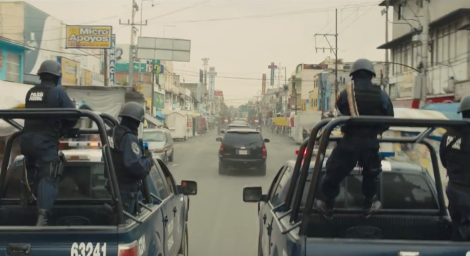 As Graver’s team accelerate their morally questionable efforts to find their kingpin target, Mercer must hurriedly decide which side of the “does the end justify the means?” question she stands on.
As Graver’s team accelerate their morally questionable efforts to find their kingpin target, Mercer must hurriedly decide which side of the “does the end justify the means?” question she stands on.
That delicious question was also at the heart of Villeneuve’s superb 2013 thriller, Prisoners, his first English-language movie. He makes no attempt to provide answers in Sicario but does demonstrate obvious sensitivity to the uncountable victims of the endless war between Mexican drug cartels and the Mexican and American governments. In a less-than-subtle side plot, we are taken into the mundane home life of Silvio, a family man caught up in his volatile environment. Silvio provides screenwriter Taylor Sheridan a face for the average person affected by the civil war in Mexico.
But you can forgive the obviousness of Silvio’s inclusion in the face of the film’s subtleties. Villeneuve, as was further demonstrated by his wonderfully abstract 2013 film Enemy, has a literary sensibility. While deft at action set pieces he is also concerned with finding layers of subtext.
 And Sicario finds moments of apocalyptic beauty, including one striking shot in which the sunset shadows of soldiers slowly descend into the black desert’s horizon. Villeneuve is rejoined by Prisoners cinematographer and Hollywood legend Roger Deakins, who provides long, stunning helicopter shots of the arid desert that flanks the US-Mexican border. The otherworldly location, when married with the sustained, discordant notes of Jóhann Jóhannsson, who also wrote the music for Prisoners, is a stark and immediate reminder that you are being taken to a frontier of human existence.
And Sicario finds moments of apocalyptic beauty, including one striking shot in which the sunset shadows of soldiers slowly descend into the black desert’s horizon. Villeneuve is rejoined by Prisoners cinematographer and Hollywood legend Roger Deakins, who provides long, stunning helicopter shots of the arid desert that flanks the US-Mexican border. The otherworldly location, when married with the sustained, discordant notes of Jóhann Jóhannsson, who also wrote the music for Prisoners, is a stark and immediate reminder that you are being taken to a frontier of human existence.
Sicario, a word that in Mexico means “hitman”, is serviced by three supreme lead performances. Del Toro, much like the film’s overarching morality, blurs the good guy/bad guy line within Gillick. In the hands of another actor and director he may have been nothing more than a monster. Brolin’s Graver is assured and smug, unwavering and strangely charismatic. And Blunt, the innocent through which the film is filtered, centres the movie, making Mercer both astounding brave and emotionally vulnerable. Blunt’s balanced performance echoes of Jodie Foster’s Clarice Starling, as her character navigates a bleak, brutal and masculine microcosm. Mercer might not be a wolf, but she’s no lamb to the slaughter.


SICARIO: FILM REVIEW
SICARIO
4.5/5
“This is a land of wolves now… and you’re not a wolf,” warns Benicio del Toro’s menacing anti-hero to Emily Blunt’s heroine. He’s not joking. There are wolves aplenty in the morally murky and violent world of French-Canadian director Denis Villeneuve’s Mexican drug cartel thriller Sicario.
Kate Mercer (Blunt) is a talented FBI Special Weapons and Tactics Team agent who leads a raid on an Arizona residential property owned by a Mexican drug cartel. Looking for hostages, the team instead finds walls lined with corpses. Mercer is then approached by shifty government agent Matt Graver (Josh Brolin), who promises that if she volunteers to join his motley crew she will have the opportunity to take down the head of one of the major cartels. On Graver’s team is Alejandro Gillick (Del Toro) an intense man of few words who has motivations of his own. The idealistic Mercer joins them in the hope of making headway in the war on drugs, rather than simply “cleaning up the mess” left by cartels on American soil.
Over the next three days Mercer is drawn into a world in which the line of morality is difficult to find – a line that metaphorically and geographically straddles the US-Mexican border. On day one the curtain is drawn back for Mercer as she joins a police escort through the mean streets of Juárez, Mexico.
 As Graver’s team accelerate their morally questionable efforts to find their kingpin target, Mercer must hurriedly decide which side of the “does the end justify the means?” question she stands on.
As Graver’s team accelerate their morally questionable efforts to find their kingpin target, Mercer must hurriedly decide which side of the “does the end justify the means?” question she stands on.
That delicious question was also at the heart of Villeneuve’s superb 2013 thriller, Prisoners, his first English-language movie. He makes no attempt to provide answers in Sicario but does demonstrate obvious sensitivity to the uncountable victims of the endless war between Mexican drug cartels and the Mexican and American governments. In a less-than-subtle side plot, we are taken into the mundane home life of Silvio, a family man caught up in his volatile environment. Silvio provides screenwriter Taylor Sheridan a face for the average person affected by the civil war in Mexico.
But you can forgive the obviousness of Silvio’s inclusion in the face of the film’s subtleties. Villeneuve, as was further demonstrated by his wonderfully abstract 2013 film Enemy, has a literary sensibility. While deft at action set pieces he is also concerned with finding layers of subtext.
 And Sicario finds moments of apocalyptic beauty, including one striking shot in which the sunset shadows of soldiers slowly descend into the black desert’s horizon. Villeneuve is rejoined by Prisoners cinematographer and Hollywood legend Roger Deakins, who provides long, stunning helicopter shots of the arid desert that flanks the US-Mexican border. The otherworldly location, when married with the sustained, discordant notes of Jóhann Jóhannsson, who also wrote the music for Prisoners, is a stark and immediate reminder that you are being taken to a frontier of human existence.
And Sicario finds moments of apocalyptic beauty, including one striking shot in which the sunset shadows of soldiers slowly descend into the black desert’s horizon. Villeneuve is rejoined by Prisoners cinematographer and Hollywood legend Roger Deakins, who provides long, stunning helicopter shots of the arid desert that flanks the US-Mexican border. The otherworldly location, when married with the sustained, discordant notes of Jóhann Jóhannsson, who also wrote the music for Prisoners, is a stark and immediate reminder that you are being taken to a frontier of human existence.
Sicario, a word that in Mexico means “hitman”, is serviced by three supreme lead performances. Del Toro, much like the film’s overarching morality, blurs the good guy/bad guy line within Gillick. In the hands of another actor and director he may have been nothing more than a monster. Brolin’s Graver is assured and smug, unwavering and strangely charismatic. And Blunt, the innocent through which the film is filtered, centres the movie, making Mercer both astounding brave and emotionally vulnerable. Blunt’s balanced performance echoes of Jodie Foster’s Clarice Starling, as her character navigates a bleak, brutal and masculine microcosm. Mercer might not be a wolf, but she’s no lamb to the slaughter.


SICARIO: REVIEW
SICARIO
4.5/5
“This is a land of wolves now… and you’re not a wolf,” warns Benicio del Toro’s menacing anti-hero to Emily Blunt’s heroine. He’s not joking. There are wolves aplenty in the morally murky and violent world of French-Canadian director Denis Villeneuve’s Mexican drug cartel thriller Sicario.
Kate Mercer (Blunt) is a talented FBI Special Weapons and Tactics Team agent who leads a raid on an Arizona residential property owned by a Mexican drug cartel. Looking for hostages, the team instead finds walls lined with corpses. Mercer is then approached by shifty government agent Matt Graver (Josh Brolin), who promises that if she volunteers to join his motley crew she will have the opportunity to take down the head of one of the major cartels. On Graver’s team is Alejandro Gillick (Del Toro) an intense man of few words who has motivations of his own. The idealistic Mercer joins them in the hope of making headway in the war on drugs, rather than simply “cleaning up the mess” left by cartels on American soil.
Over the next three days Mercer is drawn into a world in which the line of morality is difficult to find – a line that metaphorically and geographically straddles the US-Mexican border. On day one the curtain is drawn back for Mercer as she joins a police escort through the mean streets of Juárez, Mexico.
 As Graver’s team accelerate their morally questionable efforts to find their kingpin target, Mercer must hurriedly decide which side of the “does the end justify the means?” question she stands on.
As Graver’s team accelerate their morally questionable efforts to find their kingpin target, Mercer must hurriedly decide which side of the “does the end justify the means?” question she stands on.
That delicious question was also at the heart of Villeneuve’s superb 2013 thriller, Prisoners, his first English-language movie. He makes no attempt to provide answers in Sicario but does demonstrate obvious sensitivity to the uncountable victims of the endless war between Mexican drug cartels and the Mexican and American governments. In a less-than-subtle side plot, we are taken into the mundane home life of Silvio, a family man caught up in his volatile environment. Silvio provides screenwriter Taylor Sheridan a face for the average person affected by the civil war in Mexico.
But you can forgive the obviousness of Silvio’s inclusion in the face of the film’s subtleties. Villeneuve, as was further demonstrated by his wonderfully abstract 2013 film Enemy, has a literary sensibility. While deft at action set pieces he is also concerned with finding layers of subtext.
 And Sicario finds moments of apocalyptic beauty, including one striking shot in which the sunset shadows of soldiers slowly descend into the black desert’s horizon. Villeneuve is rejoined by Prisoners cinematographer and Hollywood legend Roger Deakins, who provides long, stunning helicopter shots of the arid desert that flanks the US-Mexican border. The otherworldly location, when married with the sustained, discordant notes of Jóhann Jóhannsson, who also wrote the music for Prisoners, is a stark and immediate reminder that you are being taken to a frontier of human existence.
And Sicario finds moments of apocalyptic beauty, including one striking shot in which the sunset shadows of soldiers slowly descend into the black desert’s horizon. Villeneuve is rejoined by Prisoners cinematographer and Hollywood legend Roger Deakins, who provides long, stunning helicopter shots of the arid desert that flanks the US-Mexican border. The otherworldly location, when married with the sustained, discordant notes of Jóhann Jóhannsson, who also wrote the music for Prisoners, is a stark and immediate reminder that you are being taken to a frontier of human existence.
Sicario, a word that in Mexico means “hitman”, is serviced by three supreme lead performances. Del Toro, much like the film’s overarching morality, blurs the good guy/bad guy line within Gillick. In the hands of another actor and director he may have been nothing more than a monster. Brolin’s Graver is assured and smug, unwavering and strangely charismatic. And Blunt, the innocent through which the film is filtered, centres the movie, making Mercer both astounding brave and emotionally vulnerable. Blunt’s balanced performance echoes of Jodie Foster’s Clarice Starling, as her character navigates a bleak, brutal and masculine microcosm. Mercer might not be a wolf, but she’s no lamb to the slaughter.


September 27, 2015
Album review: Silversun Pickups – Better Nature
Better Nature
3.5/5
It’s been almost 10 years since Silversun Pickups appeared with debut record Carnavas, drawing quick comparisons to buzzsaw-guitar ’90s bands like Smashing Pumpkins. But across the three ensuing records – 2009’s fervent and scintillating Swoon, 2012’s expansive and anthemic Neck of the Woods and their new experimental rock offering Better Nature – the LA quartet has continued to spread their sonic wings.
This desire to morph their songwriting, and explore and introduce fresh musical ideas, is most evident on Better Nature. Working again with Jacknife Lee, who produced Neck, and Grammy-award winning mix engineer Alan Moulder, Silversun Pickups’s fourth album shimmers with their most studio-produced sheen. The songs speak to a desire for broad, propulsive layers of texture, drawing on Chris Guanlao monstrous drumming as a secret weapon instead of their trademark guitar. On tracks like ‘Connection’, Joe Lester’s throbbing synths and swells of keyboards drown out guitarist and singer Brian Aubert’s chords. The arrangement flirts with oppression but stays dynamic enough to be interesting. And dynamics remain the most engaging aspect of the band’s music. A traditional approach to melding instruments has been blurred on Better Nature, with synths and guitars manipulated in the studio to be almost indistinguishable, creating futuristic and melodic buzzes and pulsing waves.
Although they have ventured into potentially polarising territory, one thing remains true. Very few modern, popular rock bands have the ability to craft dark, beguiling mood and atmosphere like Silversun Pickups. They remain a cinematic affair. Aubert’s sharp, haunted vocals are always evocative. His aching, fragile delivery exudes pain and longing, which builds tension on ‘Ragamuffin”s slow-building clouds of synth, and his image-rich lyrics and ability to craft a climactic rock stomper are captured on the album’s six-minute highlight ‘Tapedeck’.
Silversun Pickups have challenged both themselves and their listeners on Better Nature. For some the record will require repeated listens, for others it will demand them – and there are rewards for those that persevere. But even both sides of the coin might agree that the near-perfect production on this record is ultimately alienating. The edge of the quartet’s previous records – that irresistibly jagged edge that gave their music its immediacy – has been laminated over with Lee at the helm. As a result, no song takes you by the throat in the same way as Swoon‘s ‘The Royal We’ or ‘Panic Switch’, or Neck‘s ‘Mean Spirits’. Overall, Better Nature lacks the sense of urgency and danger – even anger – that they’re capable of. This is, of course, intentional.
But, luckily for Silversun Pickups and their immense talent, what a fan gets out of Better Nature is based purely on personal taste. The record’s faults lie only in its lack of faults. They remain challenging and effortless exponents of pop-rock hooks and taught energy. Most importantly, Silversun Pickups remain interesting and, deservedly, music fans will want to see what they come up with next.


August 29, 2015
Albert Hammond Jr: interview

Albert Hammond Jr
I was supposed to interview Albert Hammond Jr in 2007, some time around the release of his catchy second record ¿Cómo Te Llama?. But that interview was mysteriously cancelled and never rescheduled.
The cancellation always hung over me. AHJ was someone I was interested to speak with, given my admiration for his influential guitar-work and songwriting. When I heard news of long-awaited third solo record, Momentary Masters, I again threw my hat in the ring for an interview. When a time was scheduled and then cancelled the day before, I considered an unidentified curse at work. Fortunately, history did not repeat and a new time was organised. I’m glad it did, because AHJ was polite and gave thoughtful answers and generally seemed humble for someone who is a member of one of the world’s biggest rock bands.
Here is the full transcript of our interview, in which we chat would the making of Momentary Masters, his approach to lyrics, battling self-doubt and how he fell in love with music all over again.
The album has been out for about a week now. Have you been happy with the response?
Yeah, it seems people really like it. So that makes me happy, for sure.
Does the week leading up to the release of your own record feel any different to that of a new Strokes album? Are there more nerves?
I don’t really like to compare things like that. It doesn’t really do anything for me, you know?
You release your EP, AHJ, in 2013. Did you view that release as an opportunity to set the tone for your next full-length record or did you wipe the slate clean after that?
I don’t ever really wipe the slate clean, I always feel like you learn stuff then you go in a different direction naturally. You kind of do throughout a whole record. On Momentary Masters, ‘Power Hungry’ was the last song we did. And it was in a different place in the sounds we were getting than other songs that we were doing.
I guess I never really think of it like that, it’s just a consistent thing. I don’t think I need to erase anything. It always starts new in a way, but in the knowledge of having done it many times before.
Are you conscious of avoiding repeating yourself as a songwriter? Does that factor into your thinking?
Let’s see… I never fully go, “Let’s go and make a record.” Maybe that was the idea in the back of my head, but that seemed like a lot of pressure. I just had songs I was excited about that felt different. And this band was exciting me how we were playing together. So the idea was, “Let’s see how these songs, which are exciting already, mix with this band. Let’s see what happens with that.” That started a chain reaction for things to make place. I can look back at it now and say this happened and that happened, but at the time it’s just a process.
So it was just a case of getting together with the band and seeing what came out?
Yeah. I have songs for another record but I’ll just never fully say it out loud. I just see what happens. Maybe it all falls apart and nothing good comes out of it. And I think, “Shit, why did I tell everyone I was making a record.”
That’s why I’ve said in press that I feel like more of a frontman now, more of someone who’s confident in wanting to get out in front of the crowd and say, “Hey, I’m here, check me out.”
Do you consider yourself a perfectionist?
I’m never really a perfectionist. I’m really neat and aesthetics are important, that definitely comes into tone and how songs are pieced together, and parts. But never a perfectionist. I don’t know if I believe in that. If anything [this time], I was more focused in my process, I gave it more time. I tried it a different way than I had in the past.
When I was 26, 27, when I started with my first solo record, I just wanted to get out of my apartment and finish songs. I didn’t even think I’d tour it or finish a record. I’d already played shows and was in a big band, and I remember playing my first secret show just to feel how it was, and I felt like it was the first time I was ever on stage. So I bloomed late, I had to go through all these things that created this record.
Do you feel like you’ve pushed yourself vocally on Momentary Masters?
For sure, I feel like I always do though. Even on the first one I was pushing myself even on my four-track recordings. When I’m left alone, from when I was younger, they would sound like this Jay Reatard song ‘No Time’ and I would just sound like I was on a cassette tape and all distorted – I love that sound. Most people hate it, but that’s me if I’m left by myself. Gus, who is my best friend but also produced and engineered the record – and more than that, I feel like he’s a continuous person who always pushes, and we trust each other in a way that we get to focus on the things that we do. But we’ll always help each other out. We’ll come in and help each other out, like “What were you doing there? That was cool.” If it was something I was doing. That’s what happened when we did ‘St. Justice’, we had the song and I had a distorted keyboard over the whole thing, and I started playing an outro part and he was like, “Whoa, what was that!?” And that got me more excited and I was like, “Oh, shit, maybe this can go over the whole song.” Then the whole song changed. It went from being this droney thing to having this riff over the whole song that doesn’t stop. Stuff like that.
But on this record [Gus Oberg] wouldn’t let me do just whatever. And I feel like I was ambitious in some of my melodies. I know I was because I’ve been practising since the album’s been out and only now can I begin to sing them well. On record it doesn’t matter so much because you can spend all day doing it and shred your voice and just be like, “Okay, let’s just do it again tomorrow.” You can’t do that if you want to tour [laughs]. That’s why I’ve said in press that I feel like more of a frontman now, more of someone who’s confident in wanting to get out in front of the crowd and say, “Hey, I’m here, check me out.”
So you don’t give any thought to how the songs might translate to the stage?
You can tell. It was more [like that] on the other times I was recording because I didn’t have a band. With my first and second record, I had that the most. I didn’t have a band so I was making ten demos and playing with just a drummer. Gus and I made demos of every song on the second record before we went into the studio. So that’s where you can lose what it’s going to sound like live. But from the EP and this album I knew kind of right away. You could tell. You might have to tweak things slightly, but I had a whole band here so we could play the song in the studio before it was recorded.
Now that the album is finished and there is perhaps more objectivity, waht are your favourite aspects of Momentary Masters and what you have achieved on it? Both sonically and lyrically, are there particular moments you’re proud of?
Yeah, they always change and fluctuate depending on my mood when I listen to the record. But the chorus in ‘Coming To Getcha’, both lyrically and melodically, is one of my favourites. I love the riff and the harmonies in ‘Caught By My Shadow’. The chorus in ‘Drunched in Crumbs’. There’s a little bit in all of them. There’s definitely a line in all the songs – I could make a collection of all my favourite lines. I felt it as it was happening but when it was done being mixed and I could sit back, before that I was so much in the process that I couldn’t really enjoy it. But after it was all mixed and done and a little time had passed, I got to get excited. Every time we leaked a song or a video came out, I could hear the song as though I was a stranger to it. Like people were hearing it online for the first time, and that would always be really exciting. That would always be really exciting and the fact that I could like it even more was always a good sign. Because sometimes when you realise it’s out, you’re like, “Ooo.” But I didn’t feel that way at all with this record. Something about it feels different.
It’s good that you can listen to it so quickly. I know some artists put out records and can’t listen to them again for many years.
I like what I do and I also like learning. And, also, I can’t help listening to it. I practice it. Trust me, that gets boring. But that’s the whole thing, finally when it’s boring to you it’s exciting to everyone else.
From a lyrical perspective, do you see any recurring themes on the record?
They always change. I was in LA and going through a different feeling – a different emotion – and I was going through one of the songs, and it was almost like my past self was writing to my future self about something, because it made sense in a way that it didn’t before. I thought it was about something else. There were themes and even when I was writing there were things that stuck out. A lot of times your favourite lyrics lean you towards many directions. I never like going through and explaining [songs] part by part. I feel like people get that in their gut or they don’t. It’s like in school when they tell you everything about a book – you never like the book when they do that. “Oh, great. Thanks.” Then you read it by yourself – there’s a gut reaction that you have towards art, seeing a photo or a poem. There’s ways you can take it apart, to see its structure – I understand that too. But for most people, for fans and stuff, half of it has to be entertainment that hits them and the other half that brings you those goosebumps. And you’re always trying to do a little bit of both. Create the excitement and make them feel something. Some times it works better than other, and different people connect to different songs.
That was rough because I didn’t know if I loved my instrument anymore, which was a weird thing. The guitar sitting in my room looked like it was mocking me…”
If a song is open to interpretation it can mean many different things to many different people.
For sure. And they do to me, and I wrote it. But I also listen to other people’s songs and all of a sudden I’ll connect to a lyric and I’ll feel like I’ll understand myself, or the world or that person better. Sometimes lyrics aren’t like that, they’re just a thing to sing along and it’s fun. Not everything has to have some deep meaning, you know.
There was an 18-month period where you didn’t write much at all. With the making of this record, do you feel like you’ve struck a vein of creativity? Have you continued to write new material since making Momentary Masters?
Yeah, those 18 months… that was rough. But that was rough because I didn’t know if I loved my instrument anymore, which was a weird thing. The guitar sitting in my room looked like it was mocking me. I would stress about what I was going to do. What else do I love? It was the same as being alone. Are you going to fall in love again? That’s kind of what happened to me with music, because I fell in love with it. To not have it there felt like a very deep break-up, something that had always been there for me… in my private times.
I don’t go, “I’m going to make a record” and then sit down and write. Obviously now, with all this practising [for the tour], you tend to write a little less because you’re focused on performance. But then that dies down. I have a bunch of songs already for another album just from the constant work, that we never got to doing for this album. But I’ll start putting [ideas] in folders, or start doing my own demos or if I feel like something’s really excited and I want to bring it to [the band], maybe at soundcheck, and go, “Let’s just do this.”
The name of the album, Momentary Masters, references the momentary thrill you have when finishing a song and then how quickly that goes away. Is that part of what drives your creativity? Are you compelled to chase that thrill? Or is it because you feel like your best work is still ahead of you?
All of those sound like good reasons. I don’t think it’s one thing. I think you could be the most excited you’ve ever been and feel like you’ve discovered a song and want to show it to everyone, then a minute later feel like you want to quit. All those emotions go in there, it’s just trying to balance them out. Balance out the confidence to be able to build your ego to be able to do something – why would you believe you could do it? – and then give you enough self-doubt to not make you an asshole.
It just reminds me of when I was a kid and I wrote a melody, there’s nothing better than that first second where you feel this raw melody. If you played it for anyone they’d be like, “What are you doing?” They almost wouldn’t hear it, but you’d hear the beginnings of something in your head. That’s fun once you’re getting to where I am here. I’m a little more confident with stuff because you can believe in yourself at an earlier point. When you first start, you’re scared and you throw things away because they’re very delicate, those early stages. They can be shot dead very easily.
I still get a thrill from it. I feel like a late bloomer and I’ve just begun, as ifthis was my debut record – “Of course I need to write more songs, I’ve only made one record!”
Do you have any plans to tour this album in Australia?
I am trying my hardest to get down in February… they have a festival called…. Laneway?
That’s the one.
Ok, cool. I remembered the name. Jesus Christ. I feel like I’m a Jersey gangster with a bat, trying to get down. Sometimes when I’m trying to get down to festivals I don’t stop harrassing my people who don’t stop harrassing people. They’re like, “Can you book him? Can you book him?” I want to go there more than anything. I feel like Australia is one of my favourite places to be and tour. If I don’t make it then, I’m going to try to make it on my own. Because I’ve never been there [as a solo artist] and I feel like I have an awesome setlist of songs now. I’ve just finished practising and I was like, “Wow, what a fun hour and twenty minutes I can do.” I really want to get down there.


August 7, 2015
Abbie Cornish: interview

Abbie Cornish aka Dusk
Earlier this year I had the pleasure of speaking with actress and rapper Abbie Cornish. I noticed online that today is her 33rd birthday, so it seemed the perfect time to finally put up the transcript of our interview.
I first became aware of Abbie in 2004, when I was mesmerised by her performance in Somersault. I soon learned that she was from my part of the world. Abbie grew up on a Lochinvar property, about 20 minutes from where I lived in Bolwarra Heights.
Two years later I was blown away by another of her performances, that of the title character in Neil Armfield’s deeply wrenching film Candy. Hollywood took notice and a future in the American film industry was assured. I’ve remained not only an admirer of her incredible abilities as an actress, but also her choices. From the mad, heightened reality of Zack Snyder’s immensely enjoyable Sucker Punch to Martin McDonagh’s brilliant, dark and metafictional Seven Psychopaths, Abbie always appears in interesting movies.
But it was in 2007, when I became the editor of Hunter Valley based magazine Reverb, that I learned something new about Abbie. She was a rapper. My Reverb colleague, Kieran, was friends with a local hip-hop crew called Blades of Hades. Abbie was in that crew and wrote and performed with them until her professional acting career exploded. Every so often, between cinematic commitments, I would hear of Abbie popping up in Newcastle for one of their shows and again joining them on stage. I even saw her perform once when I was working as a bartender at Newcastle City Hall and Blades (they shortened their name) were ripping it up at a one-day all-ages music festival.
Jump forward about eight years. I heard Abbie was finally working on an official hip-hop release under her musical nom de plume: Dusk. So as its release approached I reached out to see if Abbie would like to discuss her new music, and soon we were having the below discussion. The interview was for a piece in The Maitland Mercury (its circulation covers Lochinvar), but space constraints meant that the majority of her quotes were omitted. I’ve been meaning to put this transcript online for months.
Abbie was lovely to interview and came across as a sensitive, spiritual soul. Her enthusiasm for her music was very apparent. And, of course, an interviewee’s desire to discuss a subject always makes for an easy conversation. We discussed her debut EP and upcoming Australian support slots with Nas.
Without any further ado, here’s my chat with Abbie Cornish.
The Nas tour starts tomorrow night, what are your feelings ahead of the tour?
I feel really excited. I feel very prepared. I feel very lucky. I’ve been in a rehearsal room here with DJ Butcher, who I engaged to do the tour with me, and it’s just been so much fun. Prepping the gig in LA was amazing, and we did a lot of long distance stuff, but just the last two days in the studio have just been such good times. I had a big twelve-hour sleep last night so I’m feeling good.
And this is the first time you will have performed the tracks off this EP live?
It will be, yeah. So the EP is a six-track EP. ‘Way Back Home’ you’ve heard. ‘Evolve’ is another track that features Jane Tyrell that I’ll release for free as well, over the next week and a half. There’ll be another track off the EP, then there’ll be another two tracks off the EP that I remixed for the live show. And then another track that myself and Butcher just came up with – just for fun.
Yeah, so they will be Dusk’s first live shows. Obviously from [age] eighteen to twenty-two I performed with Blades, but as a solo artist I haven’t performed yet.
…acting really took off for me and took me around the world, and I’ve had such a wonderful time with it. But I was missing sharing music.
Since you’ve moved overseas have you done any live performance at all? Even on the quiet?
With friends – super on the quiet. But nothing with any banners or flyers or announcements or anything. Music has always been a part of my life, since I was a kid. It’s never not been a part of my life. Because I was about eighteen to twenty-two when I was in Blades and we were performing and making albums. Then acting really took off for me and took me around the world, and I’ve had such a wonderful time with it. But I was missing sharing music. I was making music but I wasn’t sharing it, I wasn’t playing it, I wasn’t recording it, I wasn’t putting it out into the world and I thought ‘gosh, I really want to be doing that’. I really miss doing that and I wonder what it would be like to be a solo artist and just see what happened. So I embarked on that journey.
I had so much support from the hip hop community in Australia because I had grown up in the hip hop community. There were a lot of relationships with people that were still there. But then there were also all these new relationships that blossomed when I reached out, people that I didn’t grow up in the scene with but I obviously really respected and admired.
So I came to Australia about a year-and-a-half ago and spent a month just travelling around and hanging out with everyone. It was an amazing time. That’s when I recorded with the [Hilltop] Hoods, I recorded with Illy. I went over and hung out with Drapht in Perth. Just people like Mantra, and Seth Sentry, and The Herd and Jane [Tyrell]. Hermitude. Just hung out with people and spent time with people and recorded with people. Not all of those people I recorded with, just some of them. It was a really special time for me. The hip hop community is so strong in Australia. Even just getting Tom Thum [beat boxer], out of Brisbane, to do the hand style and having Butcher DJ for me – it’s a really sweet community.
 When the idea of doing your solo release became a reality, was it always the plan to return to make it amongst Australians? Because there must be hip hop people in Los Angeles that you also could have worked with.
When the idea of doing your solo release became a reality, was it always the plan to return to make it amongst Australians? Because there must be hip hop people in Los Angeles that you also could have worked with.
Well the very first song I worked on, ‘Evolve’, is produced by an American producer. Not essentially a hip hop producer but I produced a hip hop track with him. I saw the potential for it with him. He’s so talented and a classically trained musician. He also did the whole Halo soundtrack. He does scores for film and television. I saw the potential in him to make ‘Evolve’.
But for me it was about honouring the roots of where music really began for me and the hip hop scene here, and the Australian music scene. Because I think music in Australia is abundant, it’s thriving, it’s got a great vibe, it’s very specific in that there is so much that has come out of Australia in terms of music. It’s a wonderful artistic and creative and vibrant community here. I wanted to go to the roots and the grounding of that and really honour that. I mean, there is no place like home. There really isn’t. So I felt it was a great place to begin this journey. And, funnily enough, it’s brought me here now to do this tour with one of the kings of hip hop [Nas]. One of the living legends of hip hop. And I get to do that in my home country. I couldn’t be any more blessed than this right now.
So you have been working on the EP for about a year and a half?
Yeah, I think about a year and a half. Sometimes it would be all I was working on. Then if I made a film it would just depend on my days off or my time off. I actually wrote one song called ‘Zombies’, which I’ll perform live, on the set of Solace. I was sitting on set and I kept hearing this song in my head, and I had this beat from Pluto, so in between takes it just had to get out of my system. In between takes I would just sit in my cast chair with my headphones on and I wrote that whole song over four days between takes.
There’s been times when I’ve been doing both [music and movies]. In New Orleans recently, where I was shooting Geostorm, I did a lot there. I worked on the website with Ben and was working on the [live] show. So for me [movies and music] are going to co-exist and I really love them co-existing. Even while I’m here I’m taking a meeting on a movie. For me, I’m hoping, because I really love music so much, this will be something that I will get to continue to do. I’m so happy to be doing it again because I missed it.
What has been your songwriting process? Do the songs start with a sample or a hook? Or do you have a notebook of lyrics that you draw from?
For me the process is quite organic, but if lyrics are bubbling out of me then I can write them on a piece of paper with music, without music or with beats that are inspiring me. On the EP, for example, I sourced demos of beats from various producers and if something inspired me I would then work with the producer on expanding it into a song. For example, ‘Evolve’ was a one-minute piece that Nathan and I then worked on expanding out into a four-and-a-half minute song. I had ideas for what the choruses would be and what the verses would be, then we would sit and build on those, then we’d write and restructure. It was an ongoing collaborative process.
With ‘Way Back Home’, Matt [Lambert aka Suffa of Hilltop Hoods] already had a beautifully constructed instrumental there. We did a little bit of structuring but it was already a very well constructed and well-made beat. It was just about me writing and bringing in the gospel singers.
Then there’s a few other tracks that were just embryos that we just built out. I would add some musicians, like a guitarist or DJ. It is nice to write for the actual song and it is nice to build it with a producer and musicians.
Was the EP recorded in different studios?
I recorded it mostly in the Hilltop Hoods’ studio. I also recorded in Dave Sitek’s studio in Los Angeles. Those were the two main homes for the album. I recorded a couple of things in Drapht’s studio and a couple of thing with Illy in Melbourne.
In terms of the lyrics, are there any recurring themes on the EP? What have you addressed?
You have ‘Evolve’ which is essentially about the evolution of what it is to be on this Earth. The human, physical nature and the spiritual connection, and where those two meet. Then you get ‘Way Back Home’, which I think you can get the subject matter of. Home is where the heart is. It doesn’t matter where you are, you can connect to what home really means within yourself or the people that you love. ‘Zombies’ is pretty dark. When you see it live, you’ll get the vibe of it. ‘Hummingbird’ is about love and ‘Stray Cat’ is about not having that moment where you know who you are or where you’re going. You’re a bit of a stray cat on the street, but then you have this feeling of getting over that and growing up and coming into yourself regardless of the life you’ve been given.
The bio on your Dusk website noticeably doesn’t mention your name or acting career. Do you want people to view your music as something separate to your life as an actress?
Yeah, that would be really nice, but it’s up to the listener and it’s up to, for example, you and whoever is writing about it and engaging with it. People are totally entitled to their own opinions and their own connection to things. So that’s cool with me, however people would like to receive this, listen to it, digest it – whatever they want to think about it is totally up to them. I’m really happy to be doing this and it means so much to me. That’s really fulfilling and I just want to share that with people. I hope people will connect to the music and get into it.
Are you planning to release a full-length album this year?
Yeah, even yesterday me and Butcher were going through tracks and found a couple that we’re going work on. So I think it’s already begun, to be honest.
Does it feel like the floodgates for this creative outlet have opened?
I think it’s like anything in life, if you put your energy and focus into it, it’s going to grow. It just is, you know?
Do you have any clear ideas about how you’d like your album to sound?
I think, for me, the EP was really about making music again. And it came from a very raw, very honest… a place where I was just making music. I was just writing and creating and having these collaborative relationships with people that were so wonderful. The album will come with a bit more consciousness. Even with Butcher yesterday I said, ‘Man, I really want to make some tracks with you that really want to make you dance and move. I want there to be this momentum and flow, but I want to be able to jam out with people, and for people to feel that when they listen to the song.’ And it was really fun. He was playing me stuff and I was jumping around the room. I think you could combine that with some really beautiful ambience and melodies, and some soulful piano and violins… that’s what moves me. In terms of beat-driven stuff, I love it when there’s a heartbeat in there, or a mood or emotion that’s the centre of the song – even if it makes you dance.


June 5, 2015
The Peeping Toms
 Where does the day go? I feel like I’ve asked myself this question every night before I fall asleep. When I’m working, creatively, the passing of time seems a heavier burden. The self-imposed pressure to be productive can become suffocating.
Where does the day go? I feel like I’ve asked myself this question every night before I fall asleep. When I’m working, creatively, the passing of time seems a heavier burden. The self-imposed pressure to be productive can become suffocating.
It has been over two years since the first third of my debut novel Enormity was released as an ebook on Anzac Day 2013. In that time I’ve attempted to market the book as an independent author, which can be both rewarding and testing. But I’ve also continued to write. Time weighs now as I entertain the idea that readers will forget about me unless I release something new.
In this disposable culture it is very easy to sink and disappear in the quagmire of white noise. So, with that said, I’m going to start releasing stories more regularly. I have written a stack of short pieces that I have been sitting on, waiting until I have enough to release a decent-sized paperback. But in the ebook word, length is no barricade.
Lots of people are downloading and reading short stories, and I have a few to share – and a few in the works. In June (if all goes according to plan), I’m going to put a short story called The Peeping Toms into the world. I started writing it in February 2014 and finished it a few months later. It’s an odd, Twilight Zone-esque morality tale that has little sense of morality. It’s only about 11,900 words. It has taken a bit of polishing but is very close to completion. I’m going to release it with little fanfare and let people stumble across it.
It will be up on Amazon – so get your Kindle and Kindle apps ready.
There are more short stories on the way. And, most importantly, the follow-up to Enormity is not far away. I can reveal a few things about it. Its working title is Twilight of Youth. It takes place on Earth and its timeline is simultaneous with the events in Enormity. Jack does not appear in it. There is a new protagonist called Larson. The plot has expanded quite rapidly, which is why it’s taking a bit longer than I anticipated. But about eight chapters have been written. So there is progress!
Thank you to everyone who has read Enormity and enjoyed it. I hope you like the next tales I publish.


April 7, 2015
Top albums of 2015 … so far
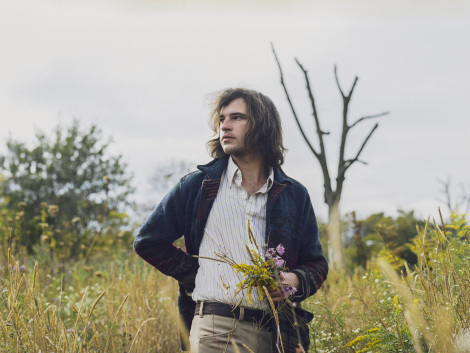
Ryley Walker
Superb records are arriving thick and fast in 2015. The Decemberists dropped their glorious What a Terrible World, What a Beautiful World in January, Bjork’s latest masterpiece appeared instantly following its online leak and Modest Mouse graced us with their first new music in eight years. It’s going to be a mammoth task to create a “best of 2015″ list given the quality that has already landed. So try to keep up. Here’s a bunch of records you need to hear.
Primrose Green
Chicago singer-songwriter Ryley Walker has followed up last year’s debut record, All Kinds of You, an impressive folk songbook, with Primrose Green. His sophomore effort is nothing short of masterful. Echoing of early Van Morrison, Jim Morrison and Tim Buckley, Walker’s warm, textured voice howls hypnotic repeated lines over waves of distorted feedback, kinetic and shamanistic drums and jazz piano flourishes. The result is stunning and mysterious, and a truly breathtaking listen. Walker’s a gifted guitarist and occasionally indulges the listener during longer psych-folk jams like ‘Sweet Satisfaction’. Primrose Green is a nod to past folk masters, with Walker’s influences incredibly evident, but his pastoral soundscapes are just too sublime to not be swept up in. This may yet prove to be the breakthrough record of 2015.
KEY TRACK: ‘Summer Dress’
Through simple lyrics and arrangements Walker conjures a melody that builds and builds into something timeless.
Strangers to Ourselves
It’s been eight years since Modest Mouse fans could re-enter the mind of songwriter Isaac Brock. And while the group’s hiatus was far from ideal, the wait was worth it. Brock deconstructs music genres like rock, folk, country and new-wave, then filters them through his cinematic subconscious and rebuilds them in a fiercely unique way.
KEY TRACK: ‘The Ground Walks, with Time In a Box’
A six-minute stomper with Brock’s trademark rhythmic guitar work. Lyrically, the song appears to take place in a world void of trees – a thinly-veiled environmental message. The state of the planet is a recurring theme throughout the record.
The Pale Emperor
Manson’s decision to co-write his ninth studio record with film composer Tyler Bates reaped giant dividends. The result is an epic rock record that relies more on genuine hooks than twisted industrial growling. And while it might be Manson’s face on the cover, all the music on The Pale Emperor is the work of Bates. The lyrics are unmistakably Manson’s.
KEY TRACK: ‘Deep Six’
Yes, I know it’s the hit single and the obvious choice but, man, what an absolute baller. It’s by far the best rock song Manson has released since ‘The Beautiful People’ and near impossible to endure without moshing around the living room. And it’s full of lyrical gems. Also check out ‘The Mephistopheles of Los Angeles’.
I Love You, Honeybear
Joshua Tillman has followed up his stunning debut record under the moniker Father John Misty, Fear Fun, with another lush, absorbing album of dreamy Americana. The title track is a cinematic soundscape that feels like a collaboration between Bob Dylan and Brian Wilson. Infused with Tillman’s wry and often self-deprecating humour, and twisted sense of romance (see perfect lyrics like ‘I want to take you in the kitchen, lift up your wedding dress someone was probably murdered in‘), I Love You, Honeybear is another sterling effort from the former Fleet Foxes drummer.
KEY TRACK: ‘True Affection’
This summery electro-pop tune sees Tillman stepping into some sweeping and fresh sonic territory – perhaps a hint of things to come.
To Pimp A Butterfly
Aside from being an astoundingly accomplished rapper, Kendrick Lamar is a literate musical visionary. His major label debut Good Kid, M.A.A.D City was constructed with cinematic sensibility and crafted as a fluid autobiographical concept record. To Pimp a Butterfly is similar in its intent, but far more ambitious. Lamar creates colourful characters, drawing performances from his guests as a director might from actors (including Snoop Dogg and George Clinton), and ultimately creates a dream-like journey through modern African American culture and his place within it as a man of faith. Musically, the whole record feels like its unfolding during the night in a half-awake state, with smooth jazz film noir soundscapes. It’s a beautiful living nightmare.
KEY TRACK: ‘u’
A devastating self-assessment spat from the voice of a fictional fan, the personification of self-doubt and guilt. The inverted emotion of everything expressed on Lamar’s track ‘i’.
Untethered Moon
Indie-rock legends Built to Spill have returned with their first record in six years. There’s no reinvention of the wheel on their eighth effort, Untethered Moon, just singer and guitarist Doug Bartsch getting the boys back together for another hefty dose of fuzzy guitar rock. The Idaho-based rockers do what they do best.
KEY TRACK: ‘When I’m Blind’
The album’s epic eight-minute closer delivers everything Built to Spill fans have been hanging out for. Guitar muscle over bare bones.
What a Terrible World, What a Beautiful World
On The Decemberists’ seventh full-length release we see rare glimpses of singer and songwriter Colin Meloy’s personal leanings and admissions. This is immediately evident on the wry opener ‘The Singer Addresses His Audience’, in which Meloy ironically dissects the relationship between band and fanbase. On ‘Philomena’, Meloy relives his youth and proclaims ‘All that I wanted in the world was just to see a naked girl’.
Full review here.
KEY TRACK: ‘Cavalry Captain’
Possibly the most irresistibly catchy tune The Decemberists have released, with a robust brass hook and the band’s trademark dreamy pop whimsy. A super joyous tune.
Tetsuo & Youth
Lamar’s To Pimp a Butterfly is not the only sweeping and superbly realised hip-hop vision to be released this year. While it arrived with little fanfare this January, Fiasco’s grand artistic statement Tetsuo & Youth is likely to have wide-reaching word-of-mouth popularity. It’s largely void of radio-length songs and its strength is not its pop-hooks, though many of them are effective. But what Fiasco does deliver on his fifth studio album, and reportedly last major release with Atlantic Records, is the promise of genius hinted at in his assured 2006 debut Food & Liquor. On the mind-bending ‘Mural’, which is almost nine minutes long, we get to hear Fiasco in full-flight. The track’s words are a dense, spewing stream-of-consciousness poem that coalesces his world view and social commentary in one scintillating metaphor-laden masterclass in literary wordplay. The production and arrangements on Tetsuo & Youth have a very crisp, polished, and at times sterile feel, despite splashings of saxophone and other organic textures, giving the overall ambience that of a modern art gallery. This might diminish the record’s lasting emotional impact, but makes it no less an absorbing and impressive listen. Fiasco is a step closer to making an indisputable masterpiece.
KEY TRACK: ‘Blur My Hands’
Fiasco again invites Aussie Guy Sebastian to lend his soaring vocals to a chorus and it proves the record’s best pop hook. The song seems to address his reasons for making music, his responsibilities as an artist and his relationship with his audience. “Now me and words, we made a deal, that I’m gon’ keep ’em real. And they show me their secrets, I can even cop a feel. Victorious, can’t match wit, with warriors. I match wig with wits, similarly can’t mix matchsticks with forests. Only you can prevent what I do. Only due can prevent what’s my view.”


